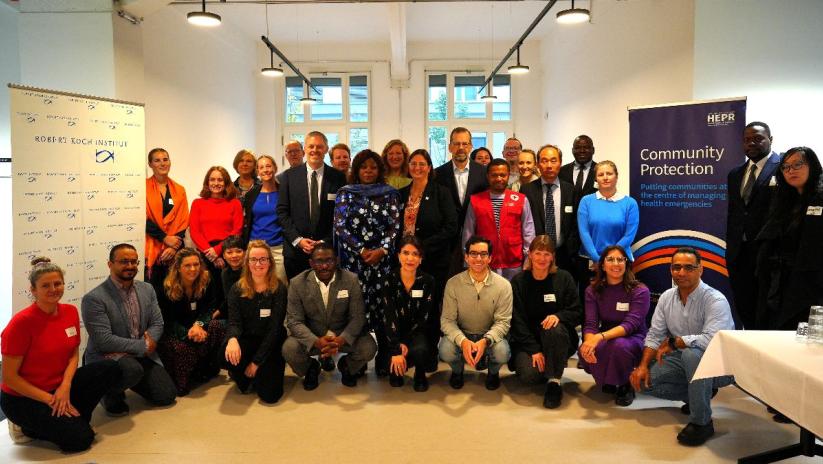
In 2018, the World Health Organization (WHO) convened a global consultation to review best practices and explore strategies to strengthen CBS. The consultation recommended that WHO compile existing evidence, develop global guidance, and support the formation of a community of practice. As a result, the Inter-Agency Community of Practice (CoP) for CBS was established in October 2023 to foster collaboration, share experiences, and develop operational guidance at the global level.
To date, the CoP has convened ten times, discussing technical and operational challenges, global guidance, tools, and future priorities. In response to the Mpox outbreak and its declaration as a Public Health Emergency of International Concern (PHEIC), WHO collaborated with IFRC and other CoP members to develop interim guidance emphasizing an integrated approach to community detection, reporting, risk communication, and related interventions. Current members include WHO, IFRC, RKI, UK PHRST, UNICEF, US CDC, UNHCR, World Bank, GFATM, MSF, and others.
On 16 October, following the World Health Summit 2025 in Berlin, WHO, the Robert Koch Institute and IFRC organized a workshop on community-based surveillance to identify strategic priorities to address technical and operational challenges in community-based detection and response.
The meeting was opened by Dr. Stella Chungong (Director of Health Emergency Preparedness Department, WHO), Dr Andreas Jansen (Head of the Information Centre for International Health Protection, Centre for International Health Protection, Robert Koch Institute) and Maya Schaerer (Programme Manager, Epidemic & Pandemic Preparedness, IFRC). Dr. Rim Kwang (WHO Community Protection and Resilience Unit) then provided and overview of WHO HEPR community protection and CBS. Dr Atim Dansan (Head of community-based surveillance at the Ministry of Health in Uganda) presented how community protection contributes to health emergency preparedness and response in Uganda and Maya Schaerer (IFRC) provided a brief overview of IFRC's experience in CBS. Participants then discussed the integration of community-level detection and response with national surveillance systems in preparedness and response contexts, ways of strengthening the community health workforce and evidence needs and research topics.
The day closed with the first in-person meeting of the interagency Community of Practice (CoP) on Community-Based Early Detection and Response. CoP members discussed opportunities for collective action, considering barriers, enablers and promising practices but also gaps in knowledge, evidence and tools highlighted during the workshop.



